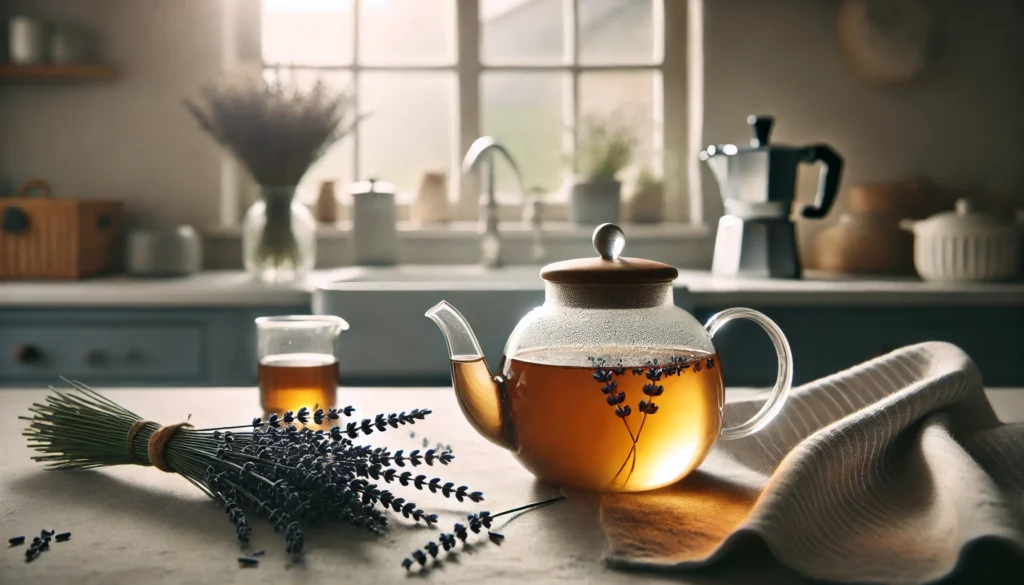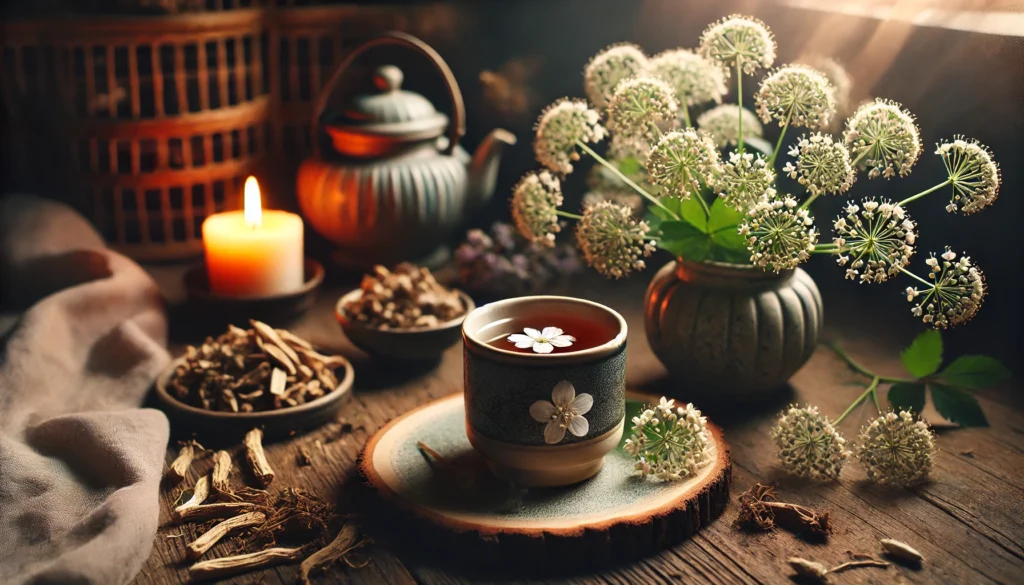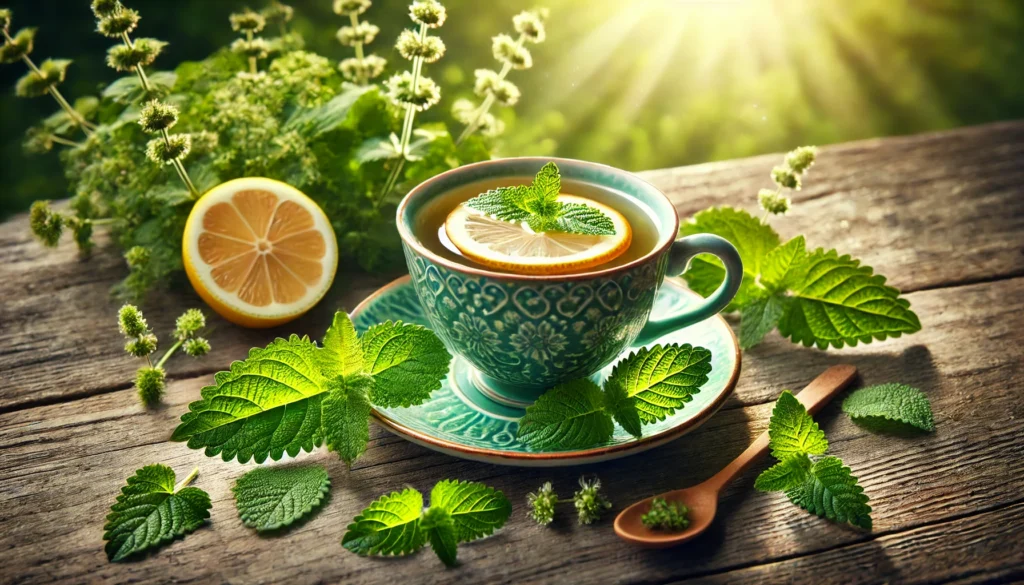In today’s fast-paced world, many individuals struggle to obtain a restful night’s sleep. Herbal teas have long been revered for their calming properties and ability to aid sleep, offering a natural alternative to over-the-counter sleep aids. In this article, we’ll delve into the best herbal teas for sleep, exploring their historical uses, scientific backing, and current trends in the wellness community.
You May Also Like: Essential Vitamins for Better Sleep Quality
The Science Behind Herbal Teas and Sleep
Herbal teas have been used for centuries to promote relaxation and improve sleep quality. Scientific studies have begun to validate these traditional uses, revealing that certain herbs contain compounds that interact with neurotransmitters in the brain, fostering relaxation and sleepiness.
The Role of Neurotransmitters in Sleep
Neurotransmitters are chemicals that transmit signals across the brain and body. They play a crucial role in regulating mood, anxiety, and sleep. Herbal teas often influence neurotransmitters such as serotonin and GABA, which are integral to sleep regulation. By altering the balance of these neurotransmitters, herbal teas can promote a state of calmness conducive to sleep.
GABA Receptors and Sleep Promotion
Most herbal teas that aid sleep contain compounds that affect the GABA (gamma-aminobutyric acid) receptors in the brain. GABA is a neurotransmitter that helps calm nervous activity. By promoting GABA activity, these herbal compounds can help reduce anxiety and promote sleep. Furthermore, some herbs contain flavonoids and other antioxidants that have been shown to reduce inflammation and stress, contributing to a more restful sleep.
Antioxidant Properties and Stress Reduction
Many herbal teas are rich in antioxidants, which play a significant role in combating oxidative stress in the body. Oxidative stress can disrupt sleep by exacerbating anxiety and stress levels. The antioxidants found in herbal teas like chamomile and lavender can neutralize free radicals, thereby reducing stress and improving overall sleep quality.

Top Herbal Teas for Sleep
Here’s a look at some of the best herbal teas for sleep, backed by both tradition and science.
Chamomile Tea
Chamomile tea is perhaps the most well-known herbal tea for sleep. It has been used since ancient times for its calming effects. Chamomile contains an antioxidant called apigenin, which binds to certain receptors in the brain that may decrease anxiety and initiate sleep.
Chamomile’s soothing properties extend beyond sleep. It is also known for its ability to aid digestion and reduce menstrual pain. This makes it a versatile choice for those seeking multiple health benefits from a single brew. Studies suggest that chamomile may improve sleep quality in individuals with insomnia and depression. Regular consumption of chamomile tea has also been associated with improved daytime functioning and mood.
Valerian Root Tea
Valerian root has been used since the time of ancient Greece and Rome as a treatment for insomnia and nervousness. It is believed to increase levels of GABA in the brain, promoting relaxation and sleep.
Valerian root is often used in combination with other herbs like lemon balm to enhance its sleep-inducing effects. A number of studies have indicated that valerian root can reduce the time it takes to fall asleep and improve sleep quality. However, it’s worth noting that more research is needed to fully understand its effects and optimal dosage. Additionally, valerian root may have a calming effect on the mind, making it easier to unwind after a stressful day.
Lavender Tea
Lavender is renowned for its pleasant aroma and calming properties. Lavender tea is made from the buds of the lavender plant and is often used to treat anxiety and sleep disorders.
The aroma of lavender alone has been shown to have a calming effect on the nervous system. Research has shown that lavender can improve sleep quality and increase the amount of slow-wave sleep (deep sleep) that individuals experience. It is also known to reduce anxiety and improve mood, making it an excellent choice for those struggling with sleep due to stress. Furthermore, lavender’s anti-inflammatory properties can help alleviate headaches and muscle tension, further promoting relaxation.
Passionflower Tea
Passionflower has been traditionally used in herbal medicine for its sedative effects. It is believed to increase GABA levels in the brain, similar to valerian root, thus promoting relaxation and improving sleep.
Recent studies have found that passionflower tea can improve sleep quality and duration. It is particularly beneficial for individuals experiencing sleep disturbances due to anxiety. In addition to its sleep-promoting properties, passionflower is also known to support heart health and reduce menopausal symptoms, offering a range of benefits beyond sleep.
Lemon Balm Tea
Lemon balm is a member of the mint family and has been used since the Middle Ages to reduce stress and improve sleep. It contains compounds that are thought to interact with GABA receptors, promoting relaxation.
Lemon balm’s mild lemony flavor makes it a popular choice for blending with other herbs. Studies have shown that lemon balm can improve mood and cognitive function, as well as reduce stress and anxiety, all of which can contribute to better sleep. Moreover, lemon balm is sometimes used to soothe gastrointestinal discomfort, adding to its appeal as a multifunctional herb.

Current Trends in Herbal Tea Consumption
In recent years, there has been a surge in interest in natural remedies for sleep, partly fueled by growing awareness of the side effects associated with pharmaceutical sleep aids. This has led to an increased demand for herbal teas, with many people seeking out these natural sleep remedies as a way to improve their sleep health without resorting to medication.
Rise of Wellness and Self-Care Culture
The wellness community has embraced herbal teas not only for their sleep-promoting properties but also for their overall health benefits. Many herbal teas are rich in antioxidants and other nutrients that can support general health and wellbeing. As self-care and wellness become more mainstream, herbal teas are increasingly seen as essential components of a holistic health regimen.
Innovations in Herbal Blends
As research continues to explore the efficacy and mechanisms of herbal teas, we can expect to see even more targeted herbal blends designed to promote specific sleep-related outcomes. This could lead to more personalized sleep solutions that take into account an individual’s unique sleep challenges and health profile. Companies are experimenting with innovative blends that combine multiple herbs to maximize their sleep-inducing effects.
The Role of Sustainability
With growing environmental awareness, many consumers are seeking sustainably sourced herbal teas. This trend has led to an increase in organic and fair-trade herbal tea options, ensuring that the production of these teas does not harm the environment or exploit workers. Sustainable practices in herbal tea production are becoming a key consideration for eco-conscious consumers.
Practical Advice for Incorporating Herbal Teas into Your Routine
Here are some tips for making the most of herbal teas as sleep remedies:
Timing is Key
Drink your herbal tea about 30-60 minutes before bedtime to give the compounds time to take effect. This timing allows the calming effects to peak as you are preparing to sleep, helping you transition smoothly into a restful state. Additionally, sipping tea slowly can become a meditative practice, enhancing its relaxing benefits.
Consistency Matters
Make herbal tea a regular part of your bedtime routine for the best results. Consistent use helps your body associate the ritual of drinking tea with sleep, reinforcing a healthy sleep pattern. Over time, this can train your mind to begin winding down as soon as you start sipping your tea.
Create a Relaxing Environment
Incorporate other sleep-promoting practices, such as maintaining a regular sleep schedule and creating a relaxing bedtime environment, to enhance the effects of herbal teas. Dim the lights, play soothing music, and ensure your bedroom is a calm, comfortable space. Combining these practices can amplify the calming effects of herbal teas, leading to a more restorative sleep experience.

Conclusion
Herbal teas offer a natural, gentle way to improve sleep quality. Whether you’re drawn to the calming effects of chamomile, the soothing aroma of lavender, or the sedative properties of valerian root, there’s a tea to suit your needs. By incorporating herbal teas into your nighttime routine, you can create a peaceful ritual that supports better sleep and overall wellbeing. As always, consult with a healthcare professional before making any significant changes to your health routine, especially if you are pregnant, nursing, or taking medications.
Herbal teas are not just a trend—they are a time-tested sleep remedy with a rich history and promising future in the realm of natural wellness. As more people seek holistic approaches to health, the role of herbal teas in promoting sleep and overall wellness is likely to expand, offering hope for those who long for a peaceful night’s rest.
Further Reading:
Restless? Try These Bedtime Teas for Better Sleep
Important Note: The information contained in this article is for general informational purposes only, and should not be construed as health or medical advice, nor is it intended to diagnose, prevent, treat, or cure any disease or health condition. Before embarking on any diet, fitness regimen, or program of nutritional supplementation, it is advisable to consult your healthcare professional in order to determine its safety and probable efficacy in terms of your individual state of health.
Regarding Nutritional Supplements Or Other Non-Prescription Health Products: If any nutritional supplements or other non-prescription health products are mentioned in the foregoing article, any claims or statements made about them have not been evaluated by the U.S. Food and Drug Administration, and such nutritional supplements or other health products are not intended to diagnose, treat, cure, or prevent any disease.


